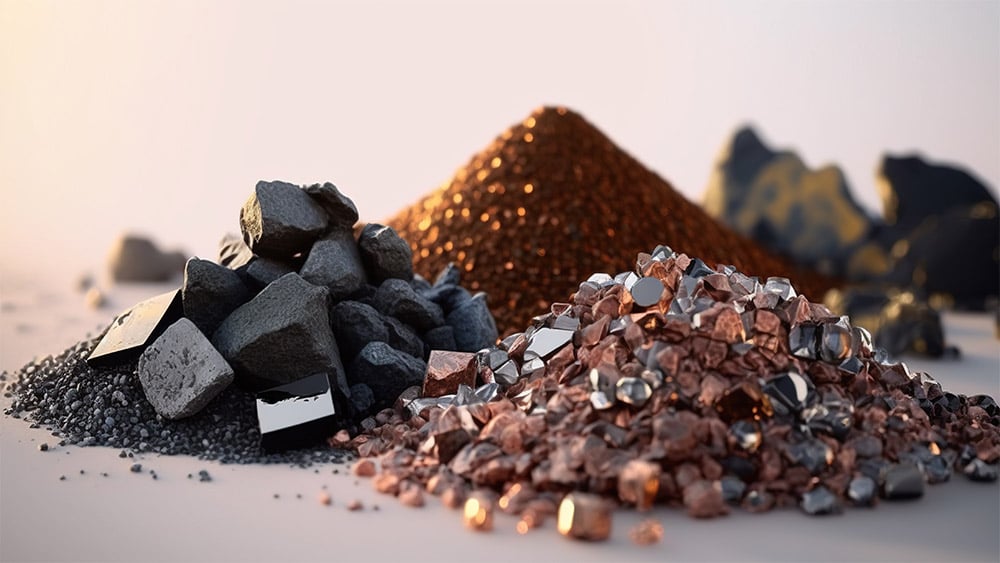Copyright investors

China will delay its new rare earth export controls, buy U.S. soybeans and finalize a TikTok deal, Treasury Secretary Scott Bessent said Sunday. S&P 500 futures jumped early Monday, while rare earth stocks including MP Materials (MP) and USA Rare Earth (USAR) tumbled on deal terms that seem to be about as good as could've been hoped for the U.S. side. There are three possible explanations, though some combination of the three may be at play: 1) Beijing may have decided to backpedal after the stringent export controls announced on Oct. 9 sparked a backlash among major global trading partners. 2) The Trump administration is soft-pedaling its concessions, possibly including a chips-for-rare-earths arrangement. 3) Trump administration officials have once again presented an overly optimistic picture about what China has agreed to. Clarity won't come until the details emerge following President Donald Trump's meeting with Chinese President Xi Jinping in South Korea on Thursday. Is China Laying Down Rare-Earths Weapon? Don't forget what happened in June, the last time there was a U.S.-China deal. "FULL MAGNETS, AND ANY NECESSARY RARE EARTHS, WILL BE SUPPLIED, UP FRONT, BY CHINA," Trump posted on Truth Social. Yet Reuters reported a few days later that U.S.-China trade talks in London had failed to unlock exports of rare earth magnets for specialized national security needs. According to the Center for Strategic and International Studies (CSIS), rare earths are indispensable for RTX's (RTX) Tomahawk missiles, Lockheed Martin's (LMT) F-35 fighter jet, Virginia- and Columbia-class submarines, Predator drones and more. Even before Beijing announced its sweeping rare-earth export controls on Oct. 9, defense-related exports were already off the table. In announcing the broadened scope of export controls this month, China's Ministry of Commerce said they were a step toward "world peace and regional stability." China spent decades establishing its rare earths dominance. Beijing must be tempted to use it to undermine the U.S. military, as well as Taiwan's, by freezing defense-related rare earth exports. Now that the U.S. is finally going all out to reestablish a non-China rare earth supply chain, is Beijing really willing to pause export controls for a year, giving the U.S. a chance to do so without paying a price in defense readiness? Trump's Leverage In Rare Earths Dispute If Beijing is laying down its rare earth weapon, it must have a powerful incentive for doing so. Trump had threatened to retaliate with an additional 100% tariff on Chinese imports. Europe, likewise, has discussed a strong response to China's export restrictions. The Trump administration has also discussed banning exports designed with or including U.S. software such as the Windows, Android and iOS operating systems. Huawei introduced its HarmonyOS operating system in 2021. "However, U.S.-made operating systems like Windows and Android still dominate the market" in China, according to an Oct. 23 report by Tom's Hardware. Beijing also may have been persuaded by carrots the Trump administration put on the table. Some Wall Street strategists have predicted for a while that U.S.-China talks would lead to a trade: rare earths for AI chips. Getting rare earths without putting advanced chips on the table is "unrealistic," Christopher Wood, global head of equity strategy at Jefferies, wrote ahead of U.S.-China talks in June. The Wall Street Journal reported last month that Xi is seeking an explicit assurance from Trump that the U.S. opposes Taiwan's independence before agreeing to a summit in 2026. Rare Earth Stocks A one-year reprieve on rare earth export controls, which Bessent indicated as a likely outcome, won't dissuade the U.S. from aggressively moving to set up a non-China supply chain for rare earths and other critical minerals. Yet, to the extent that rare earths dependence on China is downgraded from national emergency to next year's crisis, the scope of government support might be affected. Further, last week's deal with Australia, which included billions of dollars for mining and processing critical minerals outside the U.S., shows the U.S. is taking a global approach to supply-chain resilience. A U.S.-Malaysia trade deal signed on Sunday included the Southeast Asian country's commitment not to impose quotas or bans on rare earth exports to the U.S. MP Materials, the only rare earth stock to get a Trump administration equity investment to date, fell 9.7% to 63.94, after hitting 100 on Oct. 14. USA Rare Earth dived 14.3% to 20.19, falling to its 50-day moving average. That's the lowest level since USAR stock broke past a 19.68 buy point on Oct. 2, according to MarketSurge Pattern Recognition. American Resources (AREC), touted last week by William Blair as a potential Trump equity stake, plunged 20% to 3.10. Critical Metals (CRML), which has a rare earth deposit in Greenland, sold off 19.7%. NioCorp Developments (NB) sank 15.6%. Energy Fuels (UUUU), a rare earth and uranium play, slid 14%. Be sure to read IBD's The Big Picture column after each trading day to get the latest on the prevailing stock market trend and what it means for your trading decisions. YOU MAY ALSO LIKE



